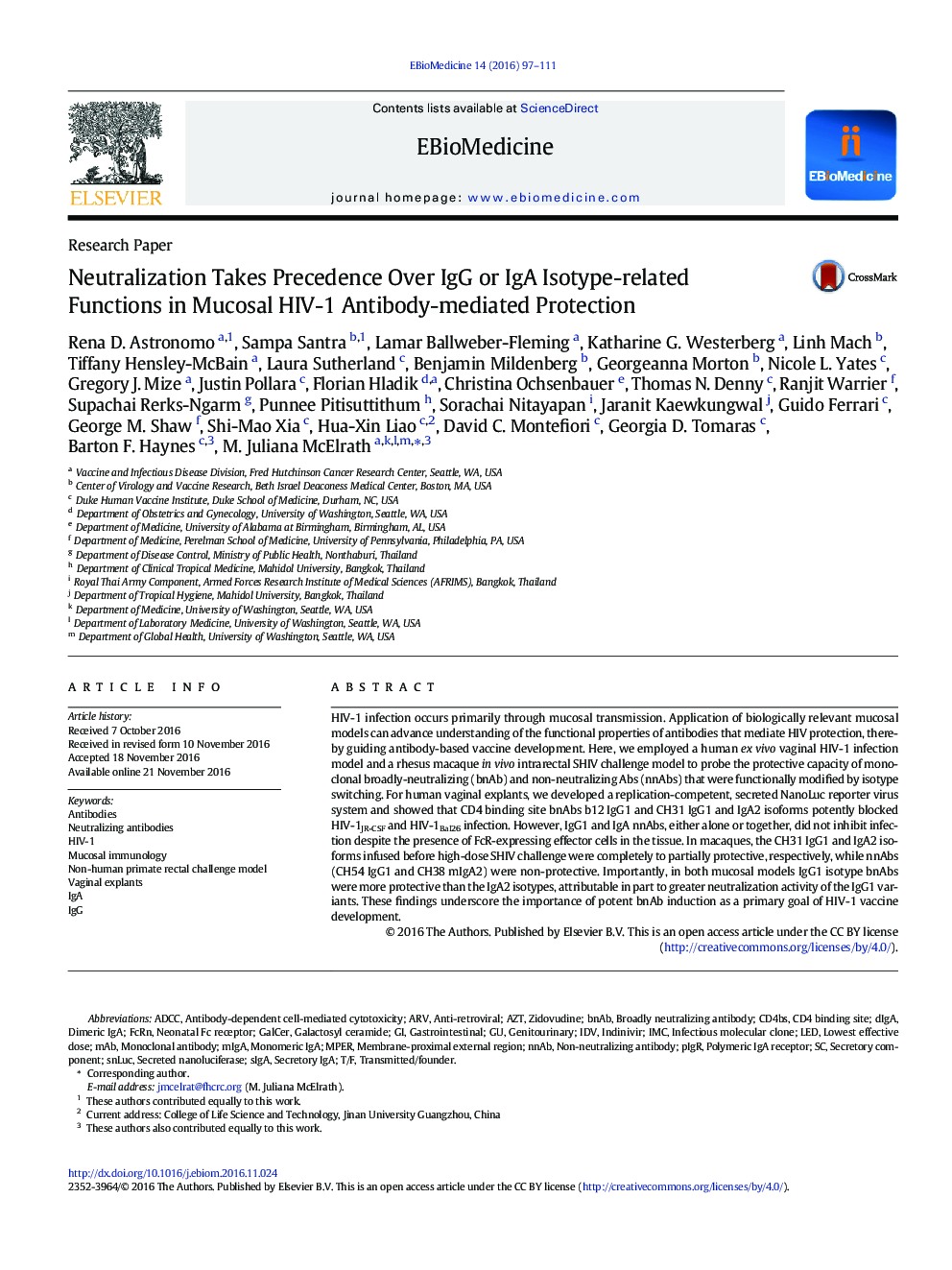| Article ID | Journal | Published Year | Pages | File Type |
|---|---|---|---|---|
| 8438857 | EBioMedicine | 2016 | 15 Pages |
Abstract
HIV-1 infection occurs primarily through mucosal transmission. Application of biologically relevant mucosal models can advance understanding of the functional properties of antibodies that mediate HIV protection, thereby guiding antibody-based vaccine development. Here, we employed a human ex vivo vaginal HIV-1 infection model and a rhesus macaque in vivo intrarectal SHIV challenge model to probe the protective capacity of monoclonal broadly-neutralizing (bnAb) and non-neutralizing Abs (nnAbs) that were functionally modified by isotype switching. For human vaginal explants, we developed a replication-competent, secreted NanoLuc reporter virus system and showed that CD4 binding site bnAbs b12 IgG1 and CH31 IgG1 and IgA2 isoforms potently blocked HIV-1JR-CSF and HIV-1Bal26 infection. However, IgG1 and IgA nnAbs, either alone or together, did not inhibit infection despite the presence of FcR-expressing effector cells in the tissue. In macaques, the CH31 IgG1 and IgA2 isoforms infused before high-dose SHIV challenge were completely to partially protective, respectively, while nnAbs (CH54 IgG1 and CH38 mIgA2) were non-protective. Importantly, in both mucosal models IgG1 isotype bnAbs were more protective than the IgA2 isotypes, attributable in part to greater neutralization activity of the IgG1 variants. These findings underscore the importance of potent bnAb induction as a primary goal of HIV-1 vaccine development.
Keywords
ADCCMPERbNAbCD4 binding siteGalCerAZTARVmIgACD4BSFcRnT/Ftransmitted/founderIDVIMCIgGmAbpolymeric IgA receptordimeric IgApIgRsIgAMonoclonal antibodyantibodiesantibody-dependent cell-mediated cytotoxicityNeutralizing antibodiesMucosal immunologyIgAsecretory componentbroadly neutralizing antibodySecretory IgAGastrointestinalLEDZidovudinedIgAAnti-retroviralmembrane-proximal external regionGenitourinaryHIV-1Infectious molecular cloneGalactosyl Ceramideneonatal Fc receptor
Related Topics
Life Sciences
Biochemistry, Genetics and Molecular Biology
Cancer Research
Authors
Rena D. Astronomo, Sampa Santra, Lamar Ballweber-Fleming, Katharine G. Westerberg, Linh Mach, Tiffany Hensley-McBain, Laura Sutherland, Benjamin Mildenberg, Georgeanna Morton, Nicole L. Yates, Gregory J. Mize, Justin Pollara, Florian Hladik,
